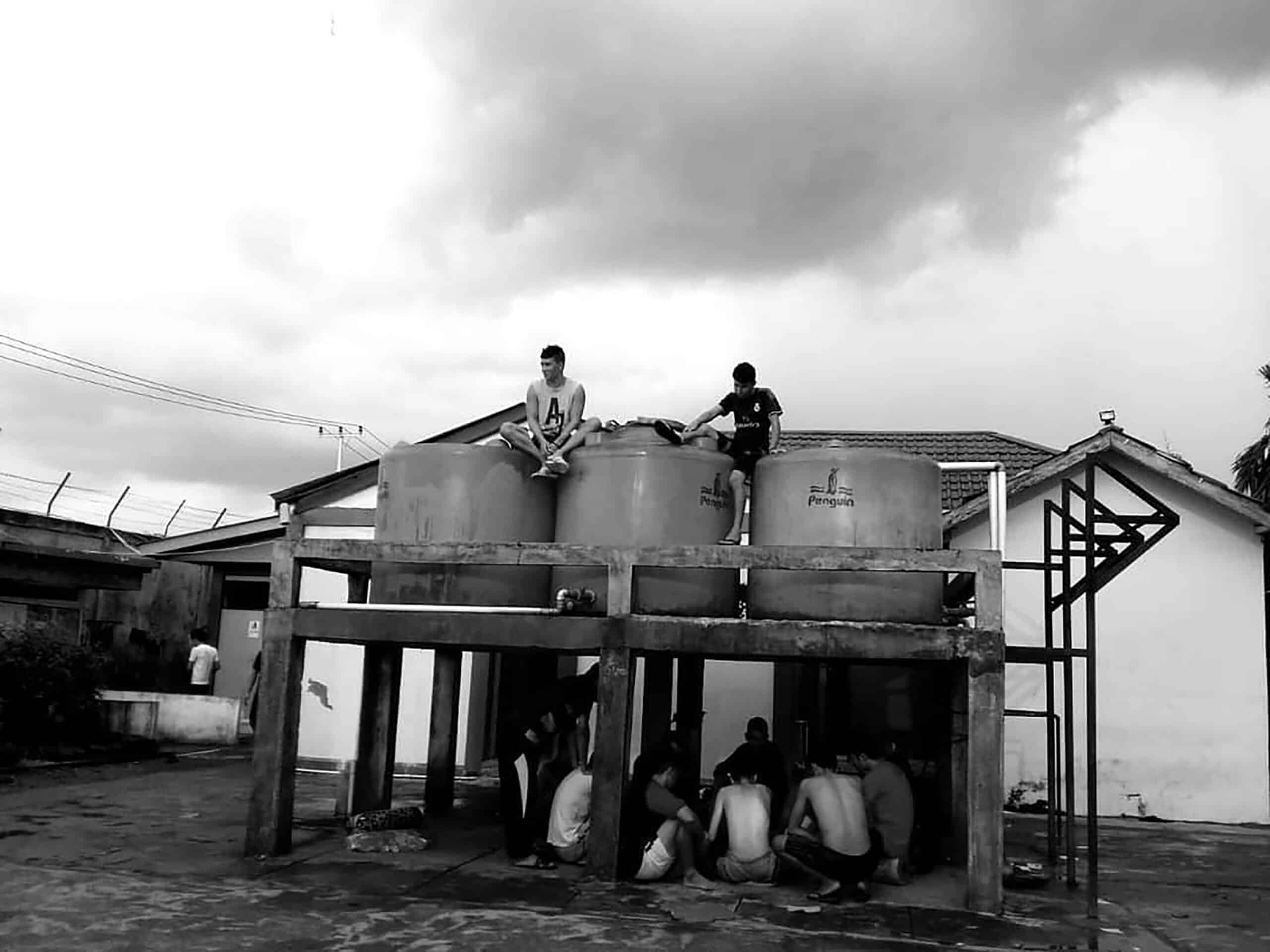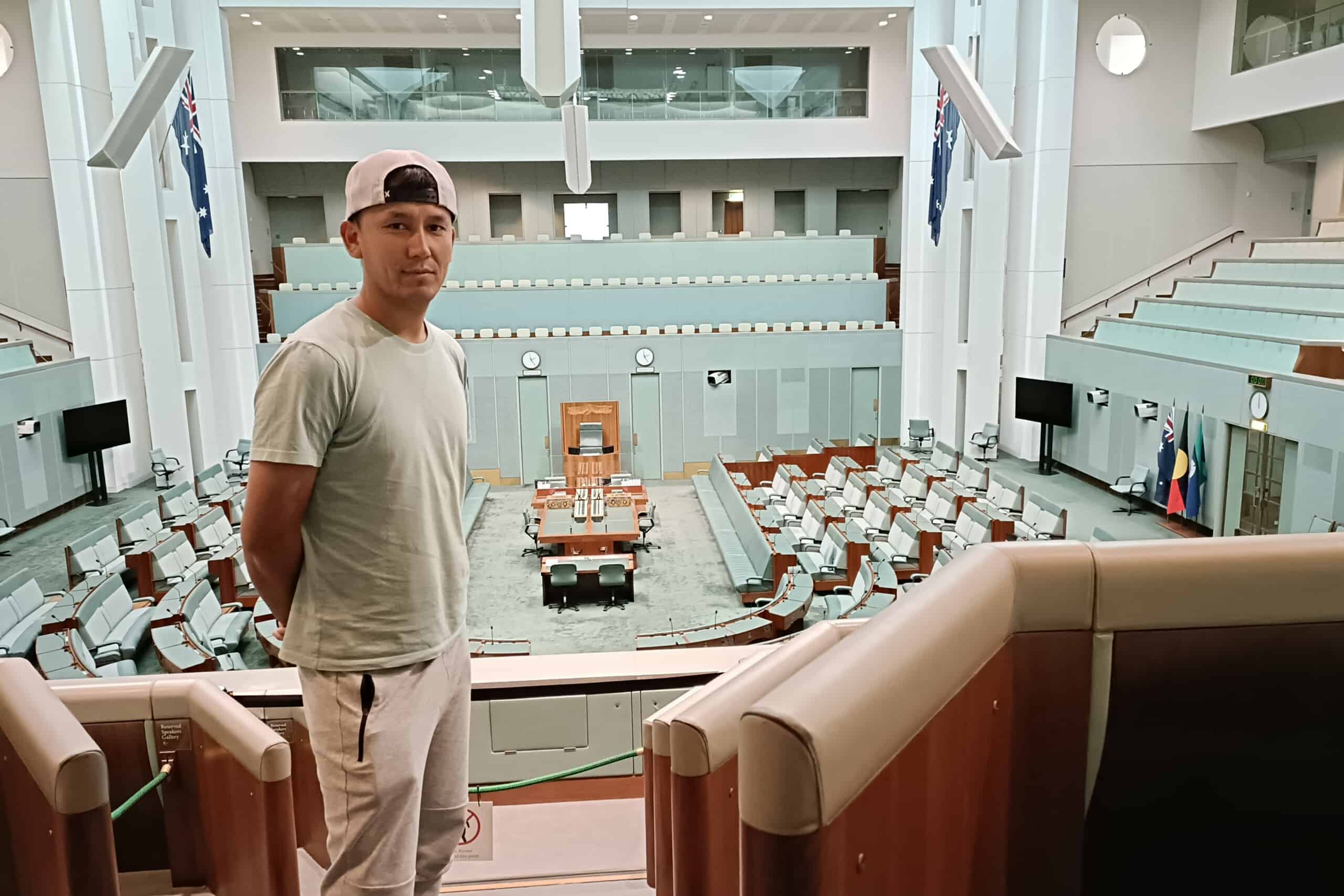The path to sponsoring refugees
I love people’s stories. I’m fascinated to learn how they got where they are, and what happened to them to craft them into the person they are. What events shaped their world view and their lives? And as much as I love stories, I also love learning something new.
On a November evening in 2020, as I was slowly bending spaghetti noodles to fit into a pot of boiling water with one hand, I used my other hand to click on the round Facebook message notification that popped up on my phone. It was from a young man named Izzat, who said he was a Hazara refugee from Afghanistan but was trapped in Indonesia. I quickly shoved the rest of the noodles into the water and sat down to read this message. This was a story I hadn’t heard before.
Cautiously—because I’ve been offered my fair share of million dollar inheritances from Nigerian princes—I let my curiosity take the reins. Izzatullah Izzat was his Facebook name. His pictures appeared to be from Indonesia’s rainforests. He provided me with a connection in Toronto, who ran a non-profit, who has a university job (thanks, LinkedIn), and who verified Izzat was both a real person and a kind one.
Izzat didn’t ask me for money. He only asked me for help finding a Canadian willing to sponsor him to come to Canada through the private sponsorship program.
Like other Canadians, the enormity of the societal changes we’d seen since the COVID-19 pandemic started left me feeling helpless. But when Izzat asked me for help, I saw one person standing in front of me who I was capable of helping. And so, I did.
Over the next few months, as Christmas lights illuminated our world, I learned more about this young man. Within a few messages, he asked if he could please call me something other than Rebecca. Because I was older than him, he said it felt disrespectful to call me by my first name. That’s how I became Auntie.
I learned about the Hazara people, who are a minority community, and their situation in Afghanistan. Even as the Western media congratulated itself on victories establishing democracy, the Hazara people (likely descendants of the Mongols and Asiatic in appearance) suffered daily kidnappings and bombings in areas outside the West’s line of sight. Throughout the 2010s, the Taliban threatened to kill every Hazara man between the ages of 7 and 70.
When you see photos of a stream of refugees walking away from the country of their birth, and ask, “Why are there so many young men?” or “Where are the women and children?”, this is part of the reason why. When war erupts, young men are the first targets. Strong and fit young men are also their family’s hope for a safer future elsewhere. They leave, hoping to establish a home in a safe country. The mothers, wives, and sisters wait at home, hearts in their mouths, hoping for freedom that their sons may forge for them in a country across the globe.

The Taliban had kidnapped Izzat and he managed to escape. He fled to Indonesia, believing the UNHCR (United Nations High Commissioner for Refugees) would help him settle in a safe country. Two weeks before he arrived, Australia, in response to the pandemic, had closed its borders to refugees (which is a violation of their UN commitments). Now, 14,000 people are trapped as refugees—some, like Izzat, for as long as 10 years. And, as an added bonus, the refugees weren’t able to get help from the UN. Instead, they had to find their own sponsors.
Izzat had sent hundreds of messages searching for a sponsor before he had reached me.
After three months of reaching out to every organization and church group I could think of and also receiving complete silence, I made the decision to sponsor Izzat myself. In turn, I messaged everyone I could think of who might possibly want to help me form a group of five private citizens who’d be responsible to help this young man immigrate to Canada and support him in his first year. After a few months, I assembled a group of people who—much like myself—are open-hearted but a little bit broke and were willing to help.
There is a lady in Australia who everyone calls the Australian Angel, or Mom Miriam. Her father was a Jewish refugee. Because her father was able to escape and survive Europe during the Second World War, she went on to become a professor, and has a good life.
She’s also disgusted with Australia’s immigration policies. When her parents died, Miriam decided to offer her inheritance in $10,000 increments to any refugee in Indonesia who finds a Canadian sponsor. This is about half of the money required for a private sponsorship group to help settle a refugee in Canada. The other half comes from friends or family, if the refugee is lucky, or from fundraising.
Our original group of five has expanded to around 10 people. We’ve submitted five sponsorship applications, and have plans for more (including women who fled from Afghanistan when the Taliban took over in 2021).
In April of this year, Izzat’s decade-long attempt to get to Australia was finally successful. After their 2022 election, the country loosened its refugee policies and began admitting people who’d been trapped in Indonesia for so long. I was thrilled that Izzat finally has his freedom and a little bit sad because he is a marvelous young man who I had hoped to meet.
Over the coming months, Qayum, another one of the young men we’re sponsoring, will be sharing more of what it’s like to be a refugee, and what he hopes for his life in Canada. His first installment is posted at ratcreek.org.
If you’d like to be part of this movement to welcome new Canadians into our community, please email me at RMLL@shaw.ca.
Rebecca has attended free concerts as bouncer, juggled plates as a waitress, completed a degree in microbiology, laboured in the oilfield cleaning storage tanks, and worked as an editor for the Government of Alberta. In her current incarnation, she has been a full-time photographer for the last 15 years, is exploring writing, and is co-parenting four nearly-grown children.







